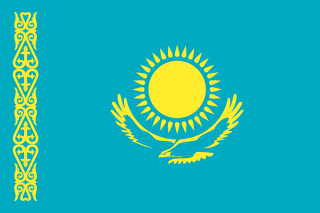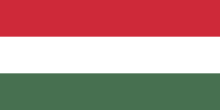
Lithuania competed at the 2014 Winter Olympics in Sochi, Russia from 7 to 23 February 2014. The team consists of nine athletes competing in five different sports. The nine athletes mark the most athletes the country has ever qualified for a Winter Olympics.

South Korea competed at the 2014 Winter Olympics in Sochi, Russia from 7 to 23 February 2014. The team consisted of 71 athletes and 49 officials. This marks an increase of 25 athletes from four years prior. Originally 64 athletes were named to the team but reallocations brought the final team size to 71 athletes.

Czech Republic competed at the 2014 Winter Olympics in Sochi, Russia, from 7 to 23 February 2014. A team of 83 athletes in 11 sports competed for the country.

Norway competed at the 2014 Winter Olympics in Sochi, Russia, from 7 to 23 February 2014.

Austria competed at the 2014 Winter Olympics in Sochi, Russia, from 7 to 23 February 2014. The team was composed of 132 athletes in 14 sports, consisting of 90 men and 42 women. The 132 athletes is 27 more than the country's previous largest Winter Olympics team.

Japan competed at the 2014 Winter Olympics in Sochi, Russia from 7 to 23 February 2014. Japan's team consisted of 136 athletes in all 15 sports. The use of Russian alphabet placed it last before the host nation in the Parade of Nations.

Poland competed at the 2014 Winter Olympics in Sochi, Russia, from 7 to 23 February 2014. The Polish team consisted of 59 athletes in 11 sports, which was the largest ever Polish team, surpassing the 56 athletes that competed in 1972. With 4 gold medals won, this was the most successful Winter Olympics for Poland in its history.

Belarus competed at the 2014 Winter Olympics in Sochi, Russia, from 7 to 23 February 2014. Belarus' team consisted of 26 athletes, competing in five sports.

China competed at the 2014 Winter Olympics in Sochi, Russia, from 7–23 February 2014.

France competed at the 2014 Winter Olympics in Sochi, Russia, from 7 to 23 February 2014.

Great Britain, represented by the British Olympic Association (BOA), competed at the 2014 Winter Olympics in Sochi, Russia, from 7 to 23 February 2014. The British team was made up of athletes from the whole United Kingdom including Northern Ireland, whose athletes may have elected to hold Irish citizenship, allowing them to represent either Great Britain or Ireland. Additionally some British overseas territories competed separately from Britain in Olympic competition. A total of 56 athletes competed in 11 sports making it the biggest contingent that Great Britain had sent to a Winter Olympic Games for twenty-six years.

Italy competed at the 2014 Winter Olympics in Sochi, Russia, from 7 to 23 February 2014. One athlete, bobsledder William Frullani, had been tested positive for methylhexanamine and was sent home from Sochi. For the first time since 1980, Italy failed to win a gold medal in an Olympics. Closest was the alpine skier Christof Innerhofer who lost the gold in downhill against Matthias Mayer of Austria with only six hundredths of a second separating the two.

Kazakhstan competed at the 2014 Winter Olympics in Sochi, Russia, from 7 to 23 February 2014. Kazakhstan's team consisted of 52 athletes competing in 11 sports, an increase of 14 athletes from four years prior.

Uzbekistan competed at the 2014 Winter Olympics in Sochi, Russia from 7 to 23 February 2014. A team of three athletes in two sports competed for Uzbekistan.

Belgium competed at the 2014 Winter Olympics in Sochi, Russia from 7 to 23 February 2014. The team consisted of seven athletes in five sports, one less than in 2010. The goal of the team was a few top-8 performances.

Spain competed at the 2014 Winter Olympics in Sochi, Russia, from 7 to 23 February 2014. The 20 athlete team was officially announced on 21 January 2014.

Croatia competed at the 2014 Winter Olympics in Sochi, Russia, from 7 to 23 February 2014. Croatia qualified 11 athletes, the fewest athletes in the fewest sports since the 1998 Winter Olympics.

Australia competed at the 2014 Winter Olympics in Sochi, Russia, from 7 to 23 February 2014. Australia's team consisted of 60 athletes competing in 11 sports, which represented the largest Winter Olympics team the country had ever sent.

Israel competed at the 2014 Winter Olympics in Sochi, Russia. The team consisted of five athletes. Vladislav Bykanov was the first male athlete to qualify from Israel in short track speed skating.

Brazil competed at the 2014 Winter Olympics in Sochi, Russia from 7 to 23 February 2014. With 13 athletes qualified, Brazil sent its largest ever team to the Winter Olympics, surpassing the ten it qualified for the 2002 Winter Olympics in Salt Lake City, United States. The 13 athletes also represent the third largest team from the Americas and the biggest of non-snowing countries.





















